Mother of two fallen heroes faces bureaucratic obstacles despite her sons’ sacrifices
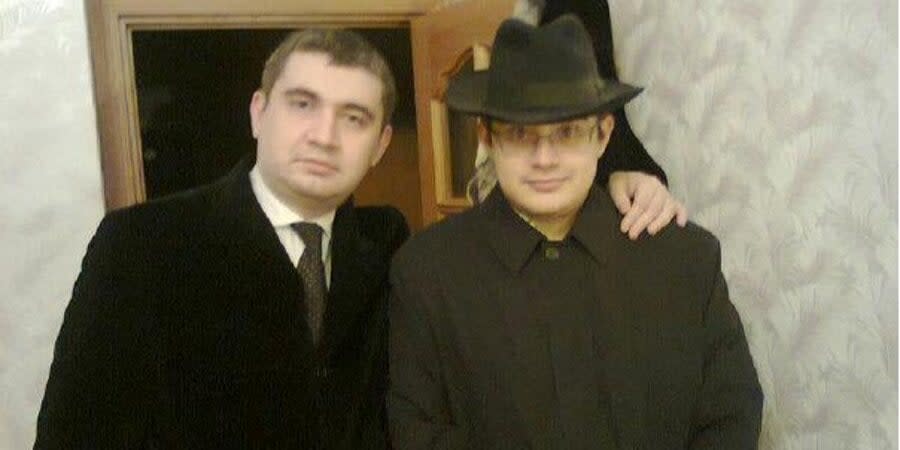
62-year-old Halyna Holitsyna is a writer of ironic detective stories. Until 1999, she lived in Donetsk with her husband and sons. That year, the family bought a house in Kyiv and moved to the capital.
"Since they were children, I tried to bring my sons up with only goodness and light,” she explains.
“I showed them cartoons and films that developed them. I always followed them, paid attention to what they were interested in, and worried about them. My boys grew up into real men who, without thinking twice, went to the front to defend their country eight years apart."
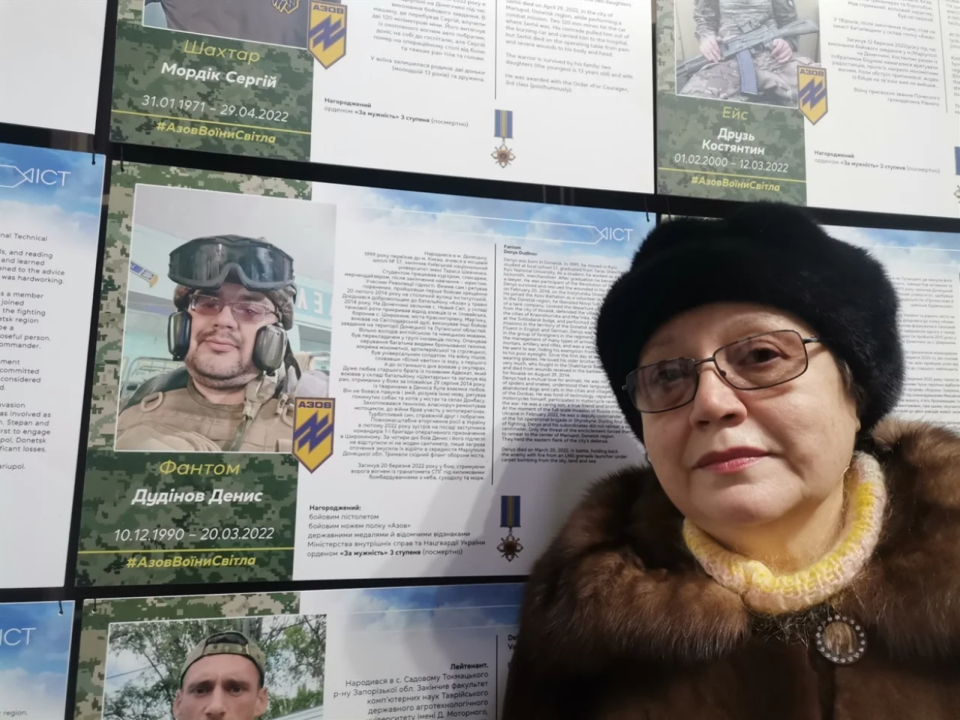
Holistyna had planned for a very different life in which her sons would raise families and she would entertain her grandchildren. Now, she is left alone.
Callsign Lawyer
Dmytro and Denys were born in Donetsk. When the family moved to Kyiv, Dmytro graduated from high school and enrolled in the law faculty at Taras Shevchenko Kyiv National University, while Denis went to second grade at Kyiv’s Specialized School No. 57. The brothers maintained their connection with Donetsk, often going there for vacations to visit their grandparents.
According to his mother, Dmytro was a unique child who was mature beyond his years.
"Even in kindergarten, he thought and acted like an adult,” she recalls.
“He grew up calm, prudent, and obedient. In the sixth grade, Dmytro surprised me by saying he would become a lawyer when he grew up. None of our relatives or acquaintances worked in this field. Dmytro himself figured out how and where to apply and what he needed to do. I supported him by buying law books, and he read all of them again and again. He easily passed the exams and was accepted on his first attempt. We didn't have money or connections, so it was entirely his achievement.”
After graduating from university, Dmytro Holitsyn passed the bar exams and received his license to practice law. He worked as a private lawyer, and was a co-founder of the Oska 1 law firm. He was fond of diving, boxing, and motor sports.
In the spring of 2014, Dmytro proposed to his girlfriend Talina in Paris, and they planned to marry that summer. At that time, the flames of war had already engulfed his native Donbas, and Dmytro decided he could not stand idly by. He signed up as a volunteer in the Shakhtarsk battalion.
"I asked him: son, why are you going? You weren’t drafted,” she recounts.
“He replied: ‘Mother, Ukraine must be defended now, I cannot stand aside. Donetsk Oblast is our little motherland, and how can we let someone take it away?’ Dmytro wanted to defend his homeland and prove himself as a citizen and patriot. He even postponed his hearings in cases in order to coordinate them with his service in the army.”
Dmytro described his attitude towards the Russian invasion of Ukraine in a social media post: "I was born and grew up in Donetsk. It happens that there are all types of people in my family: Lithuanians, Russians, Greeks, Tatars... But there are no Ukrainians (this is a peculiarity of the region). But I went to defend my Motherland as a volunteer. I am Russian by nationality, but I do not want to live in Russia. I want my children to live in a free, fair, independent Ukraine, in which things are run by laws, not by the orders of clans and chiefs. Glory to Ukraine!"
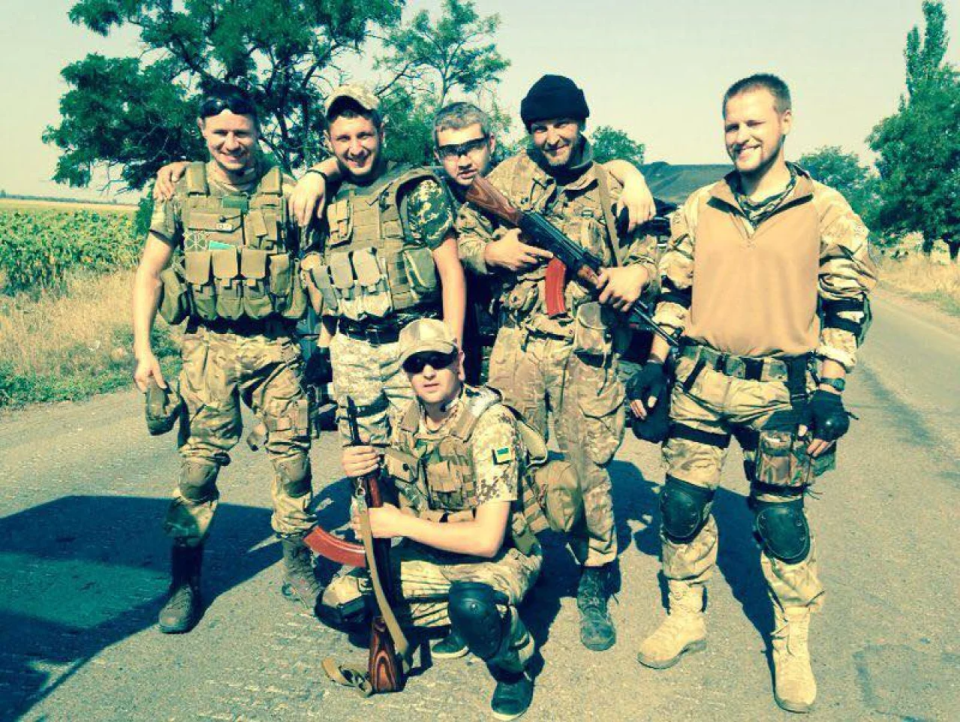
Dmytro took survival courses. He did not want to waste time at a training camp, so he immediately went to the front. He thought that the war would end quickly, and was even worried that he would not have the chance to fight.
At the end of August 2014, Dmytro was seriously wounded during a combat mission near Ilovaisk. His fellow soldier, Oleksiy Koshevets, recounted the moment on Facebook, saying “a lot has changed, but as I now remember that day near Ilovaisk, and the sunflowers, I remember you, as always, responsible and balanced. I remember your words ‘I'm wounded,’ how I dragged your 120 kilograms and you told me not to lose your rifle. I miss you and I am grateful to you."
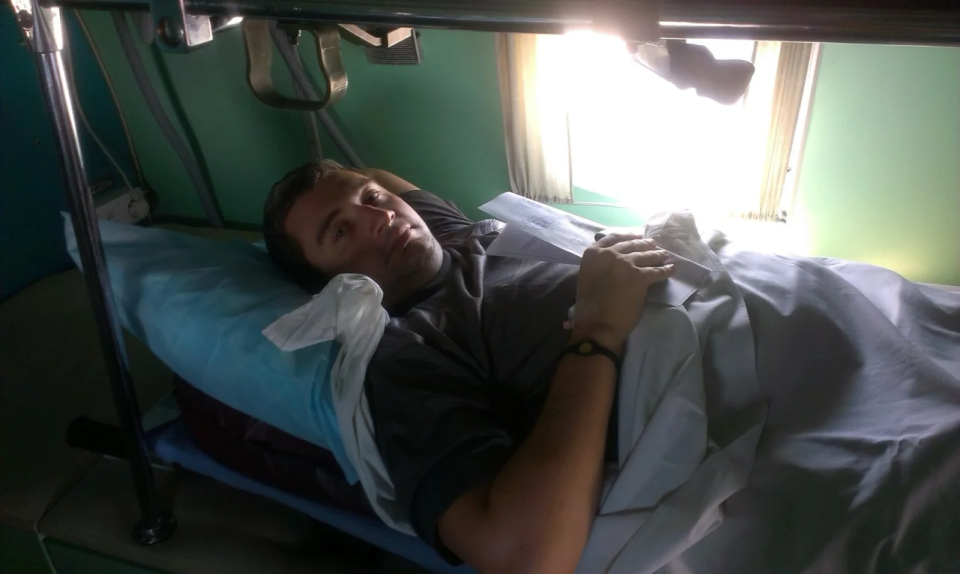
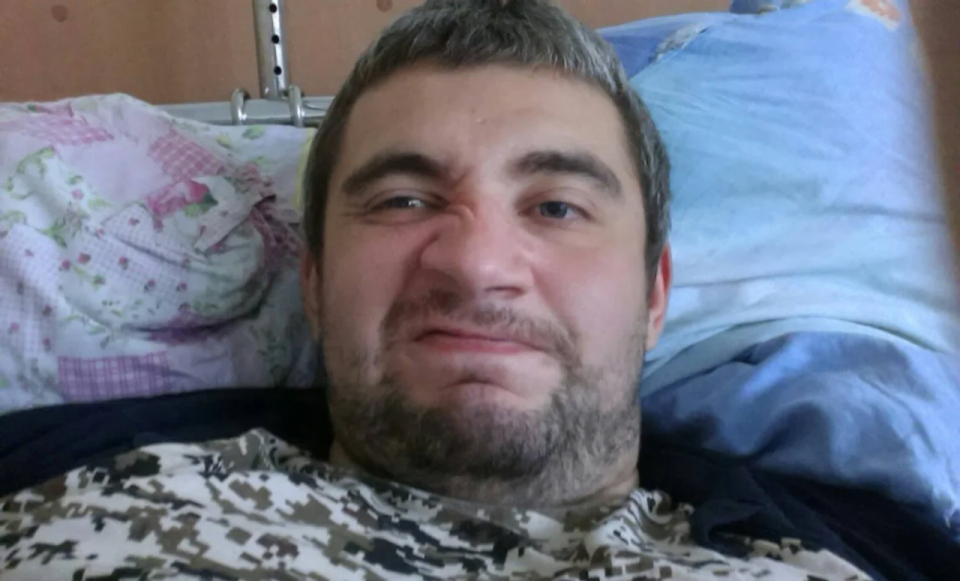
The wounded Dmytro was taken by helicopter first to Mariupol, then to a hospital in Dnipro. He underwent two operations, and was then sent to the Kyiv Institute of Traumatology and Orthopedics. All this time, Dmytro, despite the pain, was in a good mood. He made posts on social media and told jokes. His mother and brother visited him in the hospital almost every day. In Kyiv, he underwent a third operation.
On Saturday morning, August 29, 2014, on the eve of his wedding, Dmytro Holitsyn died from complications caused by a thrombosis. He was 32 years old. August 29 would later be named as a day in remembrance of Ukrainians military service members and volunteers who died defending their country’s independence. The day would be symbolized by the sunflowers from which Oleksii pulled out his wounded comrade.
Dmytro’s Facebook page remains up. On his birthday and death anniversary, the people who knew and loved him leave posts in his memory.
Two months after her son’s death, Halyna wrote, "My dear, I remember every day of your life since birth! And now it remains only to note: one more day without Dima, one more month without him. Then it will be "a year without Dima," "two years without Dima," and then a whole life without you. A whole life! Empty, senseless, unnecessary."
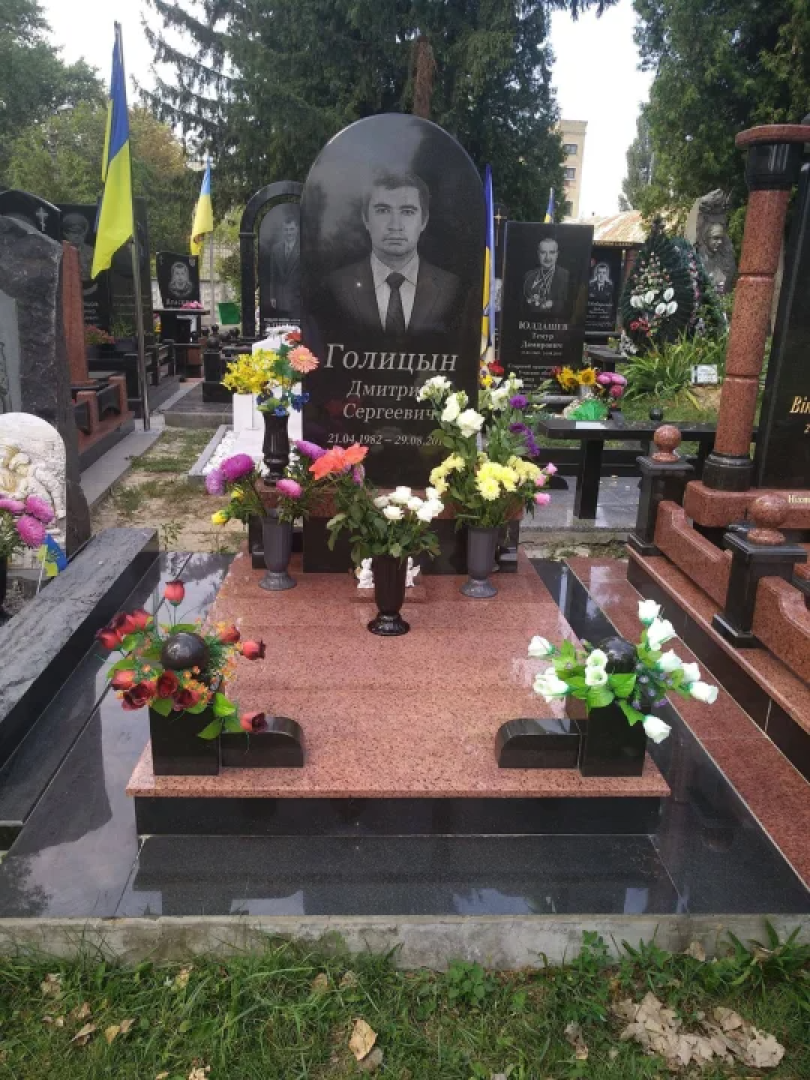
On the anniversary of his brother’s death, Denys Dudinov wrote, "It's been a year since you passed away... I remember how you cursed and were unhappy with your prognosis - a year of rehabilitation. Later, we all realized that a year of rehabilitation would have been a blessing... I remember you didn't really believe in the power of volunteer movements, but you contributed to their development. You were my role model in almost everything. This war changed almost everything and everyone and put many things in their place. Thank you for all you have done, rest in peace…”
Dmytro Holitsyn was laid to rest at the Lukyaniv Military Cemetery in Kyiv.
Phantom
Denys Dudinov went to defend his native Donetsk region, like his brother Dmytro, in 2014. He served in the ranks of the Azov battalion as a translator. Denys had bad eyesight, making him exempt from conscription, but this did not stand in his way.
"Denys studied foreign languages in depth at school,” Holitsyna said of her younger son.
“He was fluent in English and German. Despite his physical issues, he went to serve in Azov as a military translator. He translated and fought for a year and a half, like everyone else. During the full-scale invasion, he worked with Swedish volunteers, so he also mastered Swedish at a conversational level.”
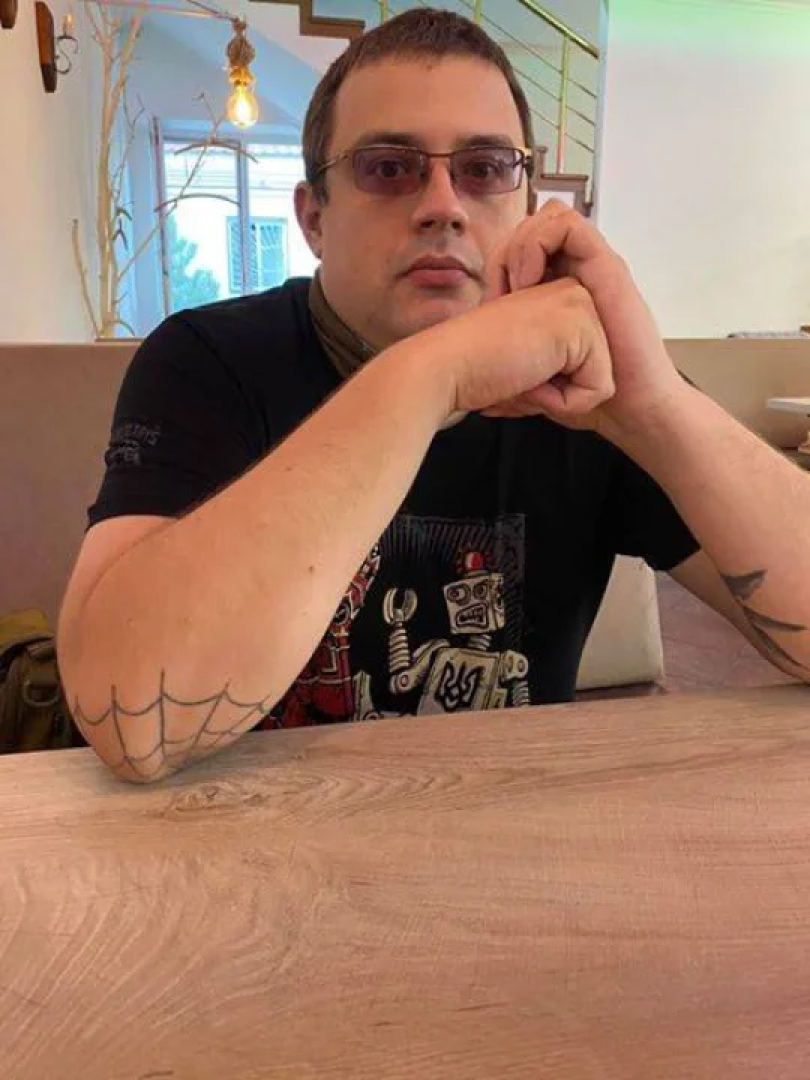
Denys was a far more combative child than his older brother. But when he grew up, he changed radically, becoming a serious, reliable person. Following Dmytro's example, he enrolled in the law faculty of the Ukrainian State University of Finance and International Trade, specializing in international law. After graduating, he worked alongside his brother as a lawyer. Denys was fascinated by the topic of knights, and he collected figurines.
Phantom fought in all the hottest spots.
"God protected him,” Holitsyna says. “
Until 2022, my son was unharmed.”
Even at the beginning of war in 2014, Dmytro Holitsyn, at his mother’s request, persuaded Denys to return to Kyiv. The brothers met in the village of Urzuf, Donetsk Oblast, where Denys’s brigade was stationed at that time. There, they almost fought.
"Dmytro called me and said: ‘Mom, I'm persuading him to come back, and he’s asking me: why did you come here in the first place? Go home alone, I'll stay here,’” Holitsyna recalls.
"I tell him to pass the phone to Denys. He was firmly convinced that he was among his brothers, where he was supposed to be. He said: ‘We need to defend our homeland. There is a war on, and I will not return to civilian life until there is peace in our country.’”
As a result, Dmytro was left alone, and was injured the next day. When Denys found out about this, he took leave and was with his mother and brother until Dmytro’s death. He struggled with the loss of his brother, but after the funeral, he immediately returned to the front.
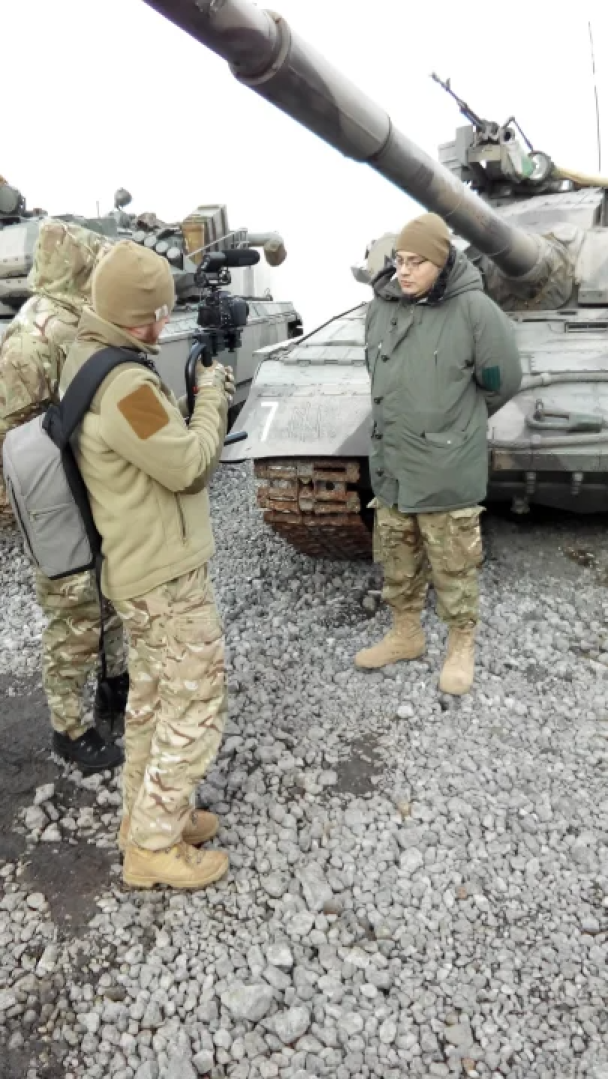
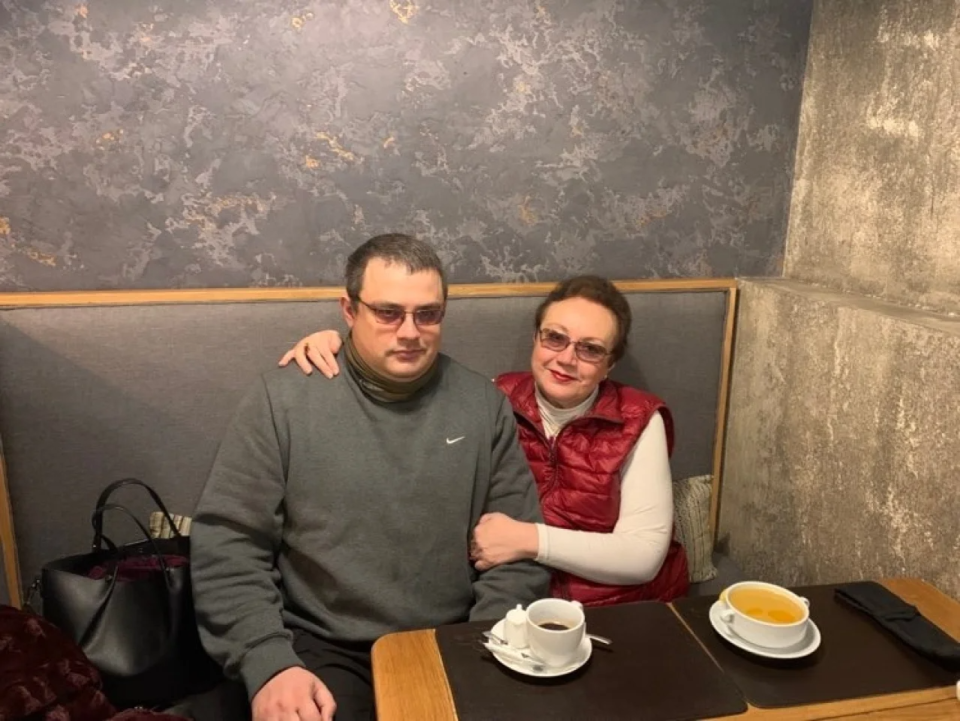
"Denys dreamed of becoming a soldier since kindergarten,” Holitsyna says.
“He was going to stay in Azov even after the end of the war, as he wanted to continue his service. To do this, he trained as a tanker. When he came home on leave and showed me the video, I couldn't believe it. I saw my son firing, and the occupiers returned fire. It is very difficult to watch this, especially for a mother.".
Denys had a fiancée named Alina. He proposed to her and gave her a diamond ring. But she asked him to leave the military after they got married, and Denys categorically refused.
“'Azov is my life. We will travel to meet each other,’ Denys told Alina. But she was not ready for that sort of life, and he took offense,” Holitsyna remembers.
“I told my son: ‘Put yourself in her position. She can build a family nest and make things happen if you are nearby. But if you are at the front and she is in the rear, how can you two build a family?’ And unfortunately, everything fell apart.”
For the past two years, Denys served as the deputy commander of the 1st Operational Battalion for managing Azov personnel in Mariupol. He held this position at the time of the full-scale invasion.
"When Denys moved from Urzuf to Mariupol, I asked: why? He replied that he wanted to be closer to the contact line,” Holitsyna recounts.
"Denis taught new recruits ideology. He knew the history of Ukraine and its heroes well. That's what he did for fun.”
On March 20, 2022, Denys was killed. The hero died on the operating table at the Azovstal plant in Mariupol, before reaching his 32nd birthday.
"Return my little chicks, for I am their mother... They will not return. They were killed and moved on. And I remained,"[1] —shared Holitsyna, burned by the pain of losing her children.
Denys's father Oleksandr wrote on Facebook, "My son died like a real man, in battle, defending Mariupol... He, like all the titans of Mariupol, under a hail of rockets, bombs, shells, mortars, grenades, bullets, and shrapnel, went through hell, saving civilians at the same time. He fought until his last breath. He was seriously injured, and they tried to save him and resuscitate him. But the injuries were not survivable... He was bright, kind, educated, patriotic, and most importantly, a decent person. A loving and beloved son. After the death of his older brother, we vowed to avenge Dima. He did it, and I must continue to do mine... I protected you, my son, along with many of your brothers. I'm sorry that I wasn't there for you in your final minutes!"
Denys’s body was returned to his mother last summer.
"My ex-husband went to the morgue and recognized Denys by his appearance,” she says.
“But it was necessary to do everything correctly. We took the DNA and didn't get a full match until late December 2022. I would like to bury the urn with Denys's ashes in a separate grave, which we will design and decorate with Azov symbols.”
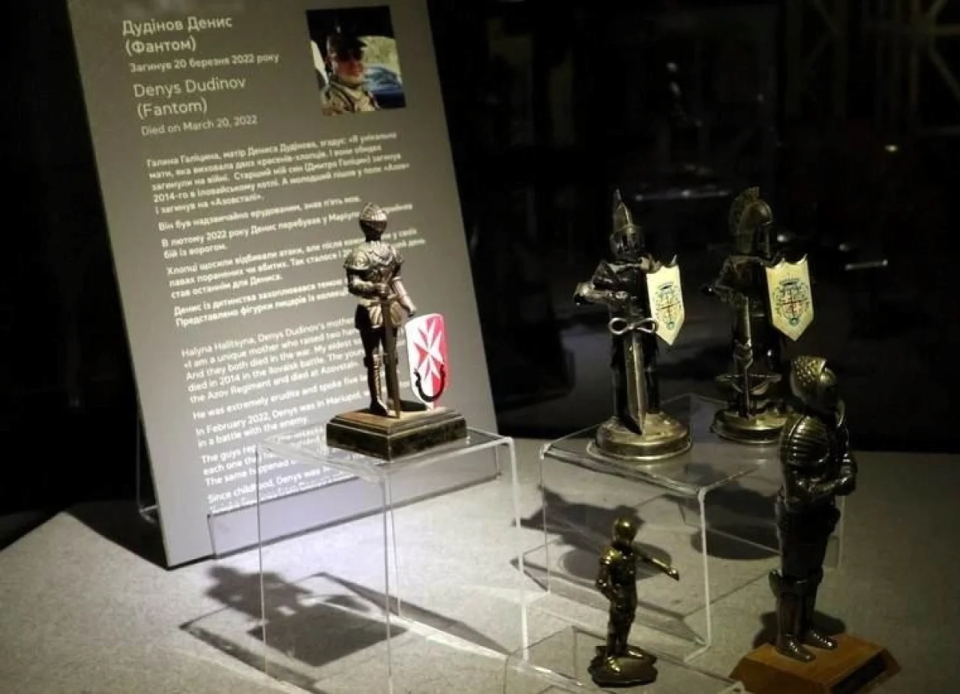
Now the families of fallen Azov fighters are working to establish a memorial to the fallen heroes of Azovstal in the capital. Holitsyna says that "Kyiv was defended in Mariupol, which is why it is necessary to honor the memory of those fighters."
The memorial could become a place of pilgrimage. But according to Holitsyna, Kyiv authorities are being "fussy" about the allocation of a plot, and discussions are still ongoing.
"When the war started, Dmytro wanted a quick victory for Ukraine in order to return to peaceful life and continue working as a lawyer,” she says.
“But Denis dreamed of continuing his service in Azov. All his things were in Mariupol. Most were burned when a shell hit the barracks. He was especially upset about his favorite bicycle. I told him: son, don't regret things, the main thing is that you survived..."
She knitted 300 warm garments for the Ukrainian military and went through seven circles of bureaucratic hell
After Denys’s death, Halyna was left alone. It took some time for her to regain her sense of self, because she believed that she had lost any meaning in her life.
"There is a war in my country, so I, like all Ukrainians, pray and wait for victory,” she explains.
“But I understand that I have to do something, so I found a job at the Zihrii (Warm Up) Fund. During the fall and winter, I knitted 300 warm items: hats, scarves, balaclavas, mats, and more. I bought the yarn myself. I knitted two to five things every day. This was my help for the front, my contribution to victory.”
The Zihrii Fund delivers warm clothes to soldiers at the front. Volunteers put a piece of candy in each item, and Halyna also sent lard, garlic, cheese, olives, and ground coffee in packed in vacuum bags.
"I know for a fact that every warm thing I make warms someone at the front, and the goodies make their day more pleasant,” she says.
“This is how our heroes feel our care and love. My children are gone, but those who are fighting are also someone's children, and I treat them like my own sons.”
Her efforts, however, were not appreciated by Ukraine’s bureaucratic system, and Holitsyna explained that the process to simply receive death certificates – necessary to obtain a military pension – was fraught with difficulties.
"There was a lot of confusion and buck-passing back and forth,” the mother says.
“Months went by and nothing happened. In order to get Denis's death certificate, I had to go to court and look for witnesses who would attest to his death. We were lucky that during one of the exchanges, Denys's comrades were returned to Ukraine, and they were able to testify to the circumstances of my son's death. After receiving the court order, we went to the local records office, where we were issued a death certificate. This process took more than two months. And as soon as we received the certificate, the investigator called us and informed us about a DNA match. However, there is still no official document from the military medical commission, so we cannot receive payments or a pension in connection with the loss of a breadwinner.”
Now the mother of the fallen defender is waiting for documents from the military medical commission.
"I have a pension of UAH 3,000 ($81), and it is impossible to survive on such money,” she laments.
"We have to live on the charity of good people. One of Denis's friends is helping me. The officials gave us a standing ovation, told us what heroes we raised, but when our sons and daughters died, they said ‘wait.’ At least I live in my own apartment, but there are many among the large Azov family who have lost their homes. What are they supposed to do? The whole world applauds Azov’s heroic feat, but unfortunately, not in Ukraine. We need heroes, but they are dead.”
She asks everyone to support her petition to award Denys the title of Hero of Ukraine, which is Ukraine’s highest military honor.
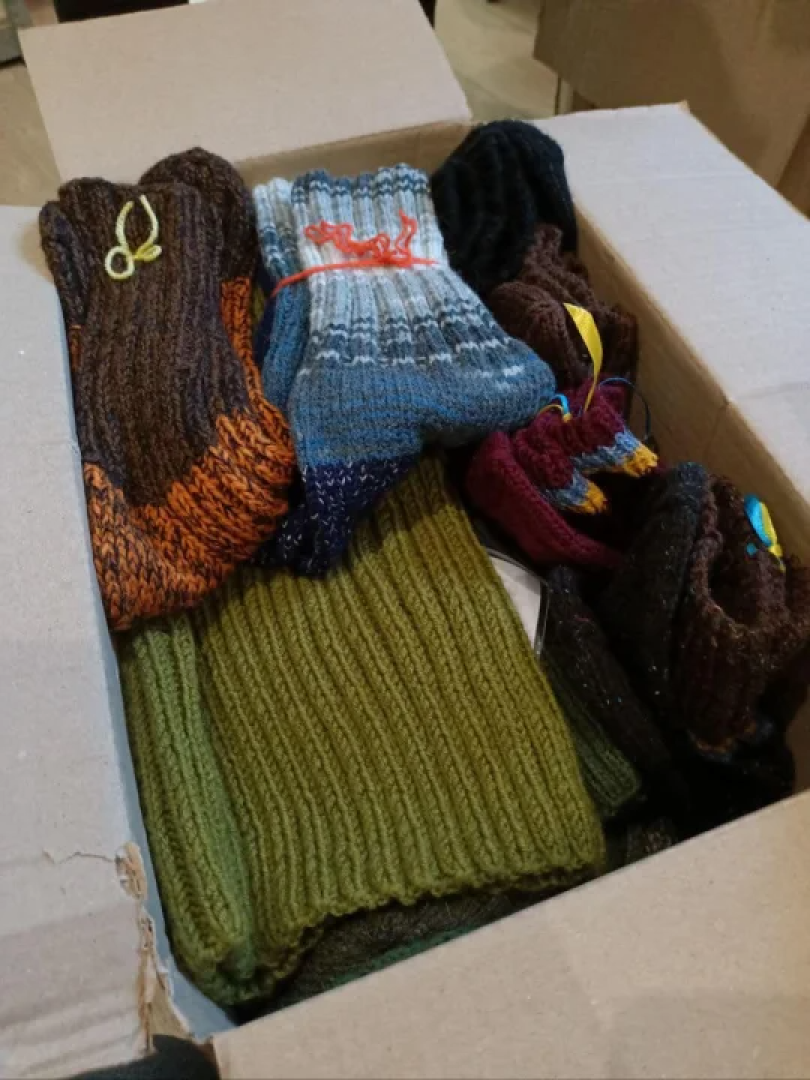
Holitsyna believes that no one can provide advice to people who are experiencing grief and loss, because everyone's circumstances are different.
"Someone lost everything, his town or village was occupied by invaders, his house was burned down, his relatives were killed, that's one story,” she explains.
“Someone had a son or daughter killed in the war, but there are still other children and grandchildren who need to be put back on their feet. Therefore, I will not advise anyone. I get out of this situation the way I can.”
Holitsyna is worried about Ukraine’s slow bureaucracy and the fact that families who have lost their breadwinners have to scrape and claw to receive their promised support from the government. It's been a year since Denys Dudinov died, yet his mother has still not received her guaranteed payments. According to the mother, the government does not care how and the families of fallen heroes live.
Another bureaucratic tangle – Holitsyna says that when the bodies of the dead Azov service members were brought to Kyiv, the families requested death certificates from the state regional centers for recruitment and social support. But the workers there replied answered that they did not know anything about this process, and fobbed them off to the National Guard of Ukraine.
We’re bringing the voice of Ukraine to the world. Support us with a one-time donation, or become a Patron!
Read the original article on The New Voice of Ukraine

